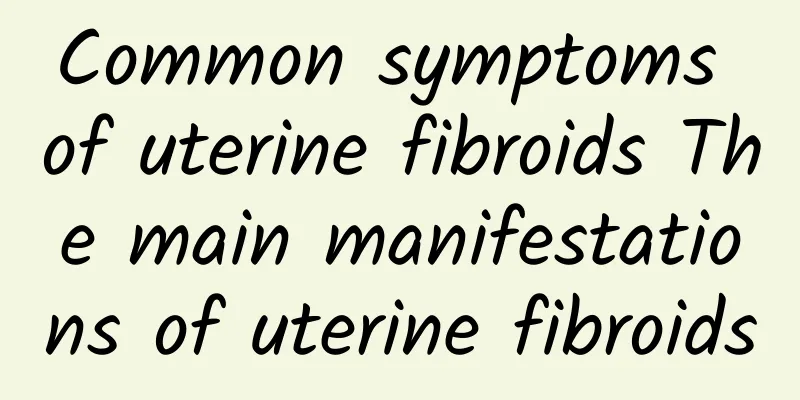How does Traditional Chinese Medicine classify and treat dysmenorrhea?

|
TCM has a trick for treating dysmenorrhea by classification. TCM believes that there are two main causes of dysmenorrhea: one is deficiency syndrome, that is, "pain occurs when there is no nourishment", and the other is excess syndrome, that is, "pain occurs when there is no circulation". Therefore, TCM also has different treatment methods according to different symptoms. ·Qi and blood deficiency: continuous abdominal pain during menstruation, scanty menstruation, light-colored and thin menstruation, fatigue, sallow complexion, poor appetite, loose stools, etc. You should take drugs that have the effects of replenishing qi, nourishing blood and relieving pain to treat dysmenorrhea. · Yang deficiency and internal cold: cold pain in the lower abdomen during or after menstruation, light menstruation and scanty flow, accompanied by backache and weak legs, cold hands and feet, and long and clear urine. You should take medicines that warm the meridians and dispel cold, nourish blood and relieve pain. For example, brown sugar ginger soup is very effective for cold dysmenorrhea. Brown sugar has the effects of nourishing blood, dispersing stasis, warming the liver, and dispelling cold, while ginger has the effects of nourishing the middle and dispersing cold, and relieving dysmenorrhea. The two medicines can be used together to nourish qi and blood, warm the meridians and activate blood circulation. · Liver and kidney deficiency: 1-2 days after the end of menstruation, back pain, leg weakness, lower abdominal pain, or hot flashes, dizziness, tinnitus, etc. You should take drugs that have the effects of nourishing the kidneys, liver and relieving pain. Qi stagnation and blood stasis: abdominal distension and pain, nipple tenderness, irritability, scanty menstruation or menstrual irregularities before or during menstruation. Dysmenorrhea should be treated with drugs that soothe the liver and regulate qi, dissipate blood stasis and relieve pain. The above are different methods of treating dysmenorrhea introduced by experts based on four different symptoms. I hope it will be helpful to you. If you still have questions about the treatment of dysmenorrhea, please consult online experts, who will give you detailed answers. The editor wishes you good health. Dysmenorrheahttp://www..com.cn/fuke/tongjing/ |
<<: What is the effective way to treat vulvar leukoplakia?
>>: Why do women experience secondary dysmenorrhea?
Recommend
Will the uterine fluid be absorbed automatically?
Uterine effusion can be divided into physiologica...
Blisters on the vulva after abnormal leucorrhea
Abnormal vaginal discharge and the appearance of ...
Symptoms of menopause
Menopause is the time when female patients experi...
What are the special types of uterine fibroids?
Uterine fibroids are also called uterine leiomyom...
Vulvar infection and inflammatory irritation can cause vulvar leukoplakia
Vulvar leukoplakia refers to localized or diffuse...
The main causes of cervicitis in daily life
I believe everyone should know about gynecologica...
Small snacks, big calories, are you eating them right?
Calorie table of common snacks during the Chinese...
What fruits are good for women with dysmenorrhea?
Diet has a great relationship with dysmenorrhea. ...
Eventually leading to infertility, women also have the hidden danger of "inflammation"
Many gynecological diseases can cause cervical er...
Introduce the early symptoms of ectopic pregnancy
I don't know if you know the early symptoms o...
The prevalence of obesity among adolescents is about 30%, and adult obesity will follow! Special clinic for adolescents provides consultation
The World Health Organization (WHO) defines adole...
Will having gynecological vaginitis affect pregnancy?
Will gynecological vaginitis affect pregnancy? Gy...
How to treat early pregnancy bleeding now
How to treat early pregnancy bleeding now? Many p...
Can adnexitis be transmitted to other people?
Now more and more people are suffering from adnex...
How do women distinguish between cervical erosion and cervicitis? Tips for early medication treatment of cervical erosion in women
Cervical erosion is a common gynecological diseas...









